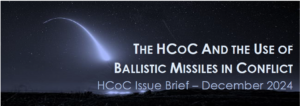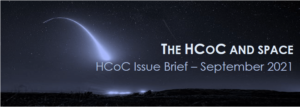Visit of Europe’s spaceport in Kourou
18 & 21 May 2011
On 18-21 May 2011, as part of the European Union’s decision to support HCoC, the FRS organised a visit to Europe’s spaceport in Kourou (French Guiana), in close cooperation with the European Space Agency, the French National Centre for Space Studies (CNES), Arianespace, the Soyouz programme, the French Chairmanship of the HCoC and the French authorities in French Guiana.
This activity was a concrete way to implement transparency measures as provided for in the Code:
Subscribing States « consider, on a voluntary basis (including on the degree of access permitted), inviting international observers to their land (test-) launch sites » (article 4 ii)
Representatives from Mexico, Pakistan, the Russian Federation, the United Arab Emirates and the United States took part in this 3-day visit. The agenda consisted in a series of presentations on the HCoC and on sites visits, including the Telemetry station and the Jupiter control room. On that occasion, participants attended the launch of Ariane V flight 202.




